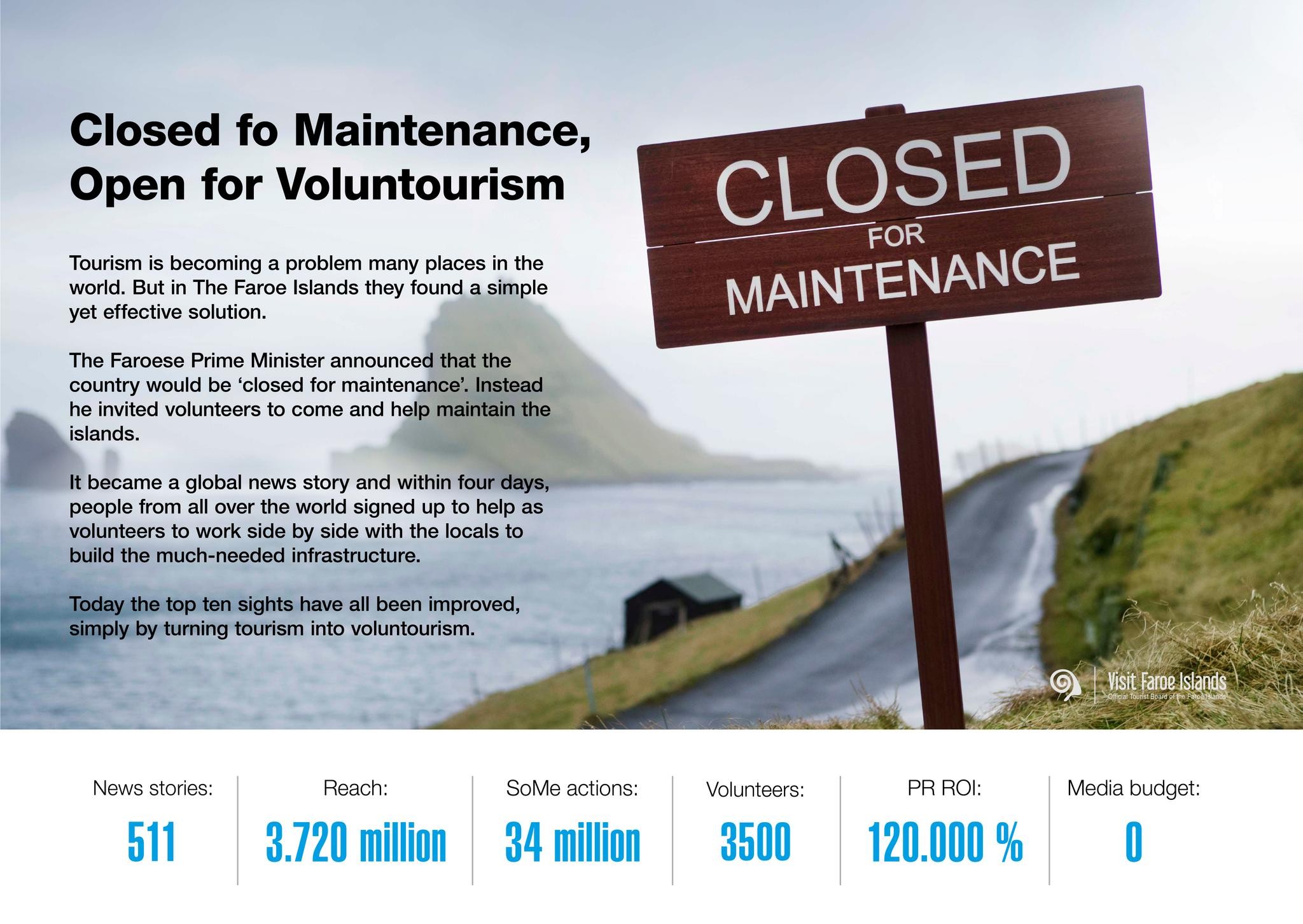Eurobest
Remote tourism
MENSCH, Copenhagen / VISIT FAROE ISLANDS / 2020
Awards:


Overview
Entries
Credits
OVERVIEW
Background
Tourism is the third largest industry on the Faroe Islands and makes up for 14 % of the islands’ total number of jobs.
Like the rest of the world, the Faroese tourism industry was severely affected when all travel and tourism activities shut down in March due to the corona pandemic.
Greatly disappointed, Visit Faroe Islands had to ask guests to postpone their planned trips to the islands during the high-season indefinitely.
Idea
We invented Remote Tourism. The world’s first remote-controlled tourism experience. The concept enables tourists to experience the Faroe Islands via a local guide, controlled via a joypad on mobile, tablet or PC.
The guides are equipped with a live camcorder mounted on a gimble stabilizer, a microphone and headphones from which they get instructions from tourists.
The “remote tourist” controls the guide via a joypad on the remote-tourism.com website. Just like an arcade game, tourists can make the guides jump, run and maneuver. That way, tourists can control the route of the tour and experience the Faroese nature in real time through a local guide.
Strategy
With $0 to spend on media, our strategy was simple. To get as much attention as possible without having to pay for it, which was not an unfamiliar approach for Visit Faroe Islands.
Previous campaigns such as Closed for maintenance and Google Sheep View had achieved great results by focusing the budget towards the creative idea and making this grand enough to not have to spend money getting people to talk about it.
Execution
We invented Remote Tourism. The world’s first remote-controlled tourism experience. The concept enabled tourists to experience the Faroe Islands via a local guide, controlled via a joypad on mobile, tablet or PC on remote-tourism.com.
Just like an arcade game, tourists could make the guides jump, run and maneuver. That way, the tourists could experience the Faroese nature in real time through a local guide.
The guided tours took place several times a day during the lockdown and went by feet or boat, on horseback or mountain bikes and even from a helicopter, also controlled by the user via joypad.
Everyone else could follow the tour live on Facebook and chat with Visit Faroe Islands.
The campaign was launched with one press release, one film and invitations to major news media and travel influencers to join the first tours to the Faroe Islands.
Outcome
Within 24 hours of its launch, the Faroe Islands had more virtual visits than usual physical visits in a whole year.
The average view time was 4.11 minutes which is 2500 % higher than Facebook’s tourism video benchmark.
On average, more than 20,000 people viewed each trip. 1,88 % commented, shared or liked, which is 1600 % above Facebook’s benchmark.
By week 21, remote tourism became the biggest tourism news story in the world with 549 news articles and an online readership of more than 5 billion people.
Through influencers, the story reached 40,3 million people on social media.
In just six weeks, 700,000 people ‘visited’ the Faroe Islands and two weeks after the reopening of the islands, all hotels were sold out.
This way, we managed to save some of the threatened jobs and give millions of people a travel experience from the comfort of their home quarantine.
Similar Campaigns
5 items
